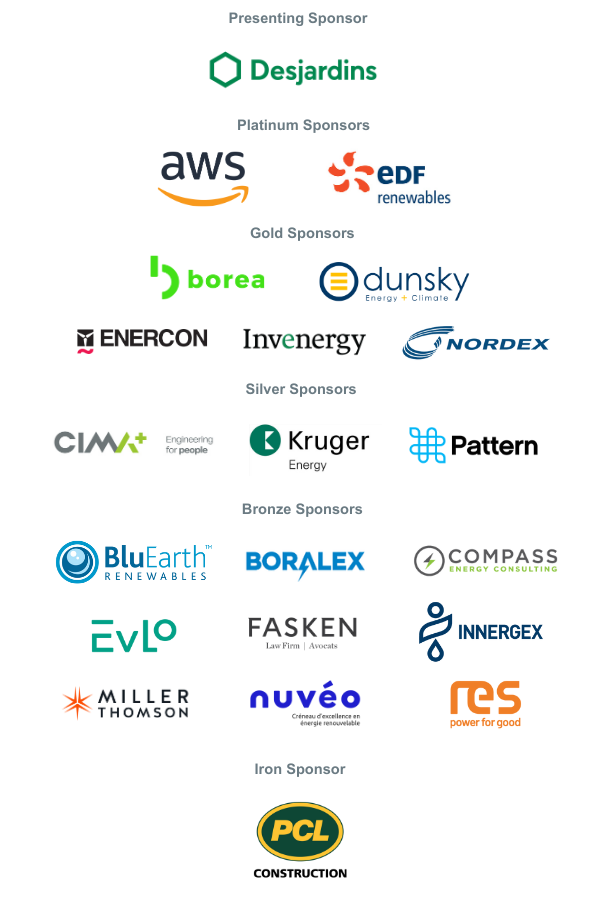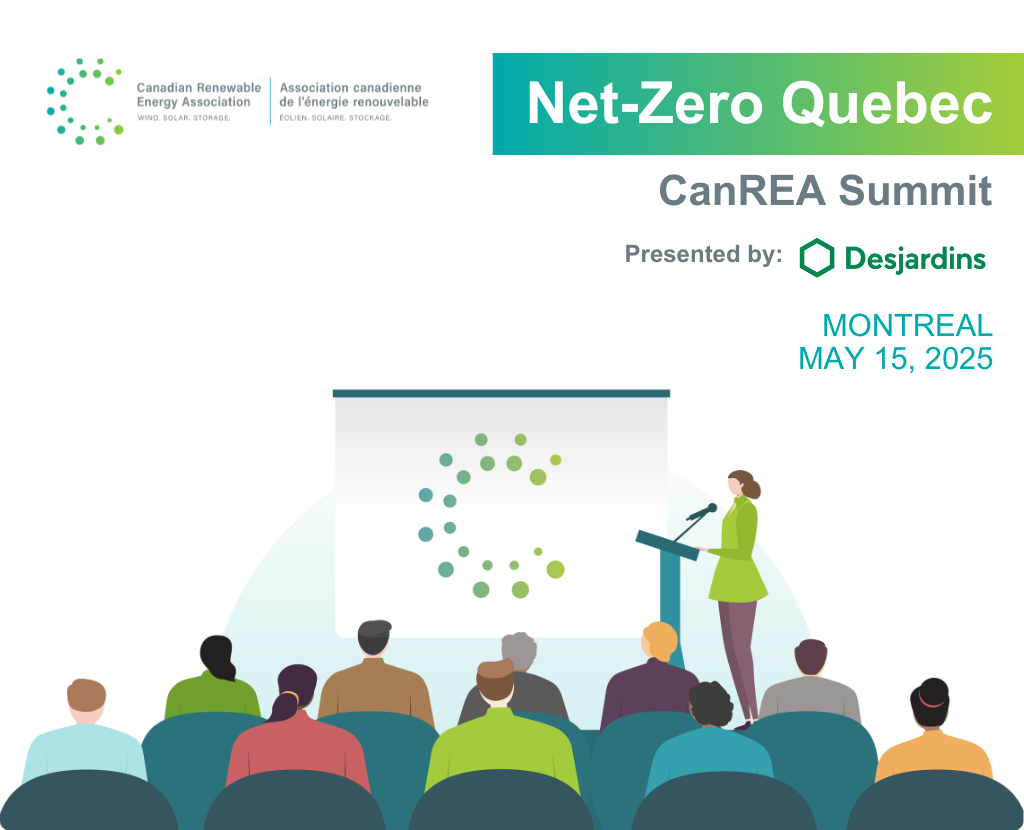May 15, 2025, 8 a.m. to 5 p.m.
Montréal, Quebec
On May 15, 2025, more than 220 participants gathered at the Hilton Garden Inn Midtown in Montreal for the second edition of the Net-Zero Quebec—CanREA Summit. This annual event has become a must for professionals in Quebec’s renewable energy and energy storage sectors. Conferences, panels, discussions and networking opportunities punctuated a full day of essential discussions on Quebec’s energy future and the energy transition.
Panel 1: Indigenous communities: Essential actors in the energy transition
The opening panel highlighted the fundamental role of Indigenous communities in the development of renewable energy projects in Quebec. Discussions highlighted the importance of adopting an inclusive approach that respects community priorities to ensure a fair and sustainable energy transition.
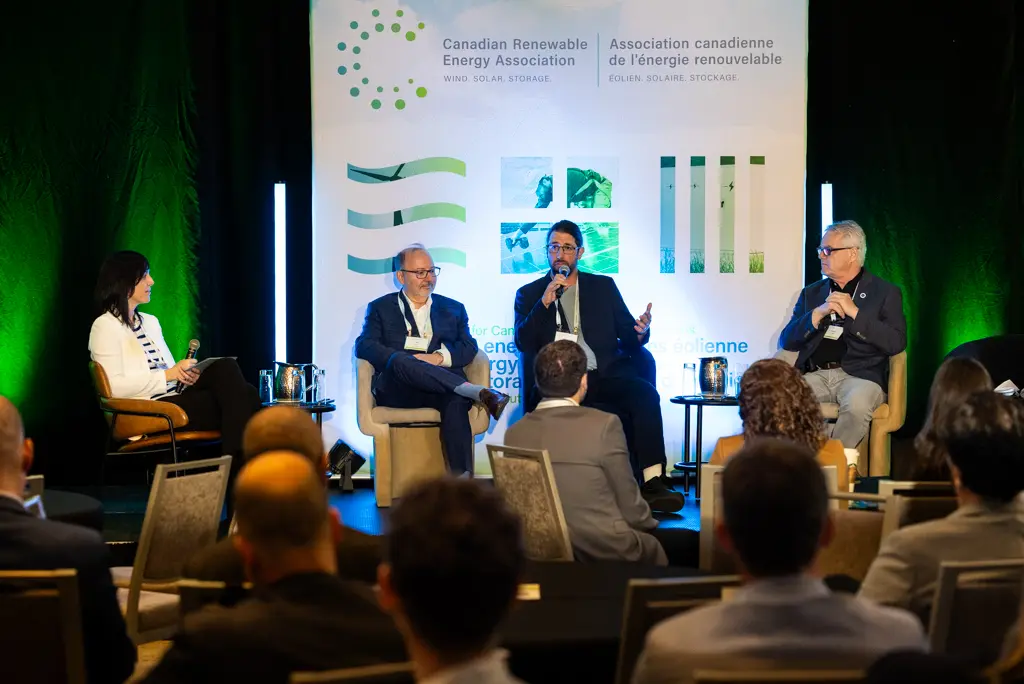
Panel 2: The economic impact of the energy transition
This panel explored the major economic challenges influencing the development of renewable energy and storage projects in Quebec, including pressure on supply chains, international competition and the costs associated with decarbonization. In a rapidly changing North American context, the panelists presented concrete avenues for accelerating the energy transition despite these constraints.
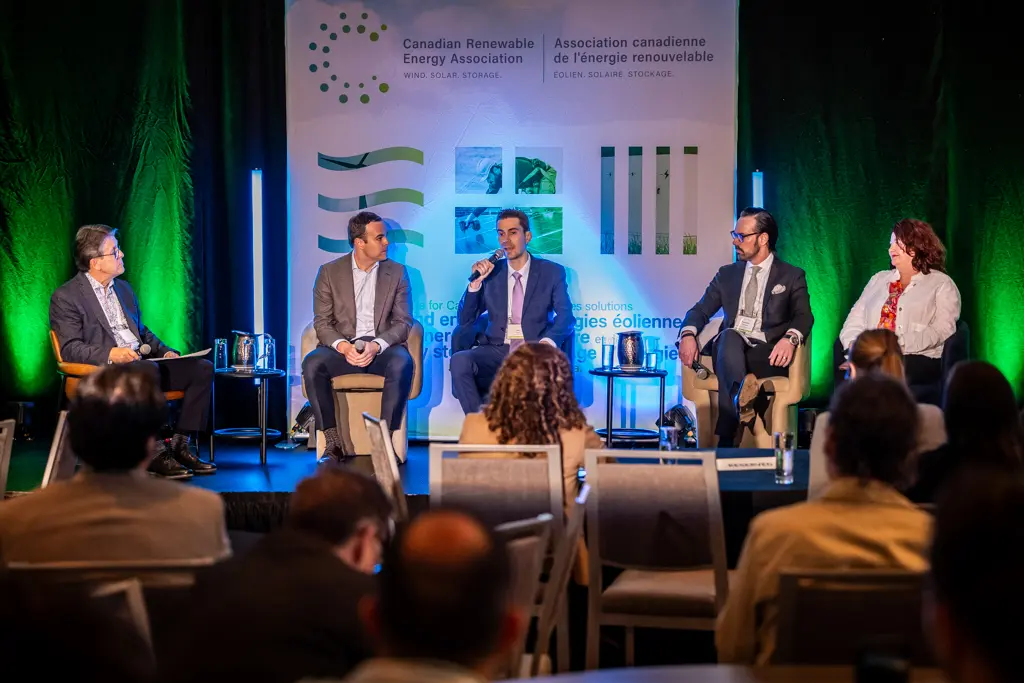
Panel 3: Accelerating acceptability: Optimizing the rollout of renewable energy projects in Québec
This panel examined growing challenges linked to the acceptability of renewable energy projects, in the context of the energy transition and achieving net-zero by 2050. Panelists discussed best practices for meeting regulatory, social and environmental requirements, while taking into account new climate realities and logistical challenges.
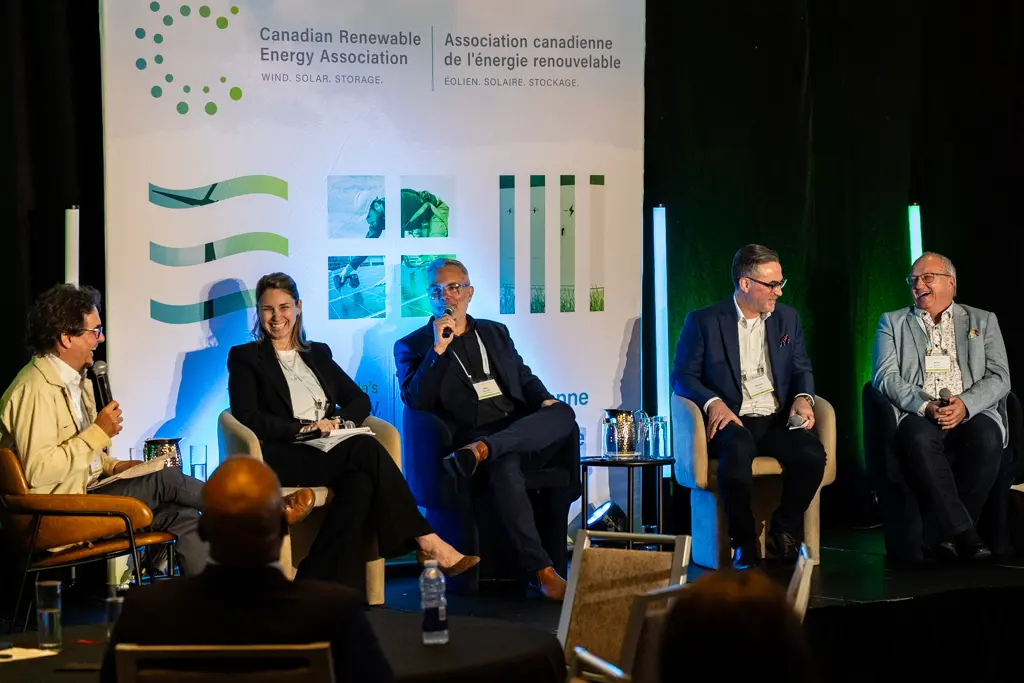
Discussions
Throughout the day, targeted discussions complemented the panels, offering in-depth perspectives on key issues in Quebec’s energy transition. These exchanges explored themes complementary to the main panels, highlighting long-term vision, regulatory considerations, territorial realities and technological opportunities.
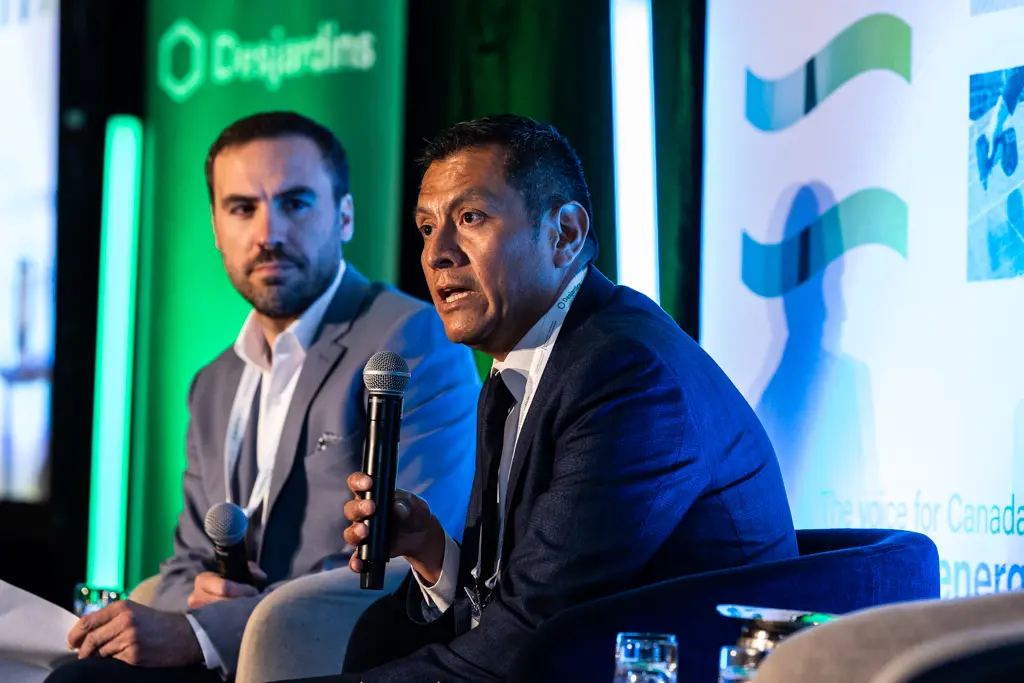
The “Update on the Public Utilities Tax (PST)” discussion offered essential insight into the tax changes proposed in Quebec’s 2025-2026 budget. Jean Habel (CanREA) and Luis Calzado (AQPER) addressed the potential impacts of this reform on energy companies, both financially and strategically. The conversation led to a better understanding of the adjustments needed to ensure that fiscal policy supports the sector’s growth while respecting the province’s climate objectives.

A discussion with Hydro-Québec, on “the development of solar energy in Quebec,” highlighted new technological avenues for electrification. Dave Rhéaume of Hydro-Québec led a discussion on the challenges of integrating solar power into the Quebec context, focusing on infrastructure, cost and public acceptability. The session was moderated by Jean-Hugues Lapointe of CIMA+. Solar energy was presented as an essential component of a diversified energy mix, capable of strengthening the resilience and agility of the grid in the face of future energy needs.
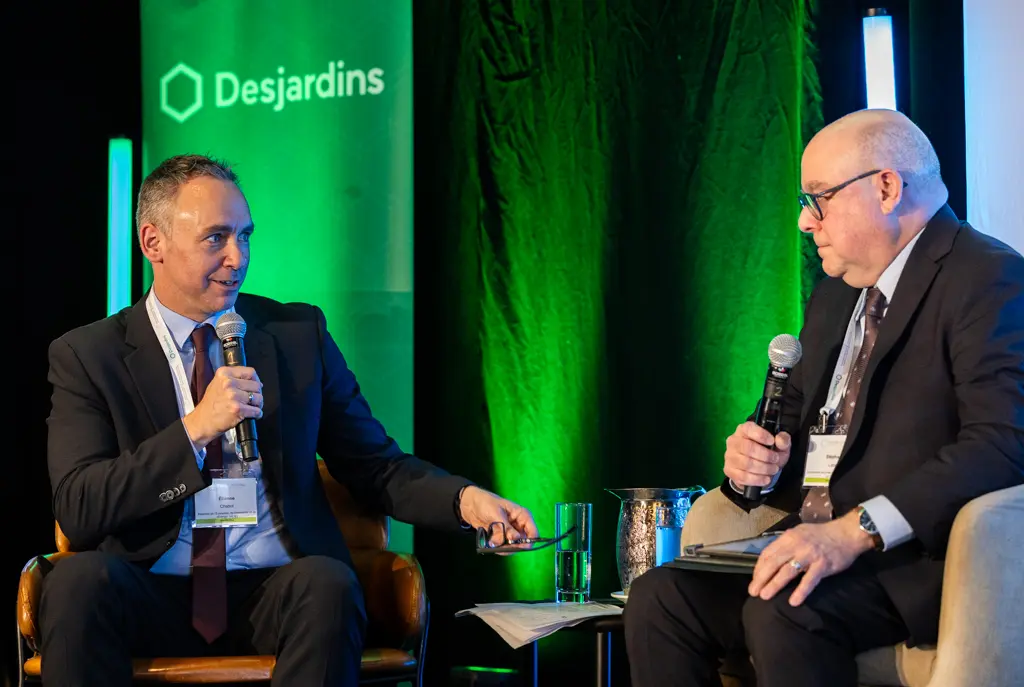
In the discussion “The CPTAQ’s key role in agricultural zones,” participants explored the crucial role played by the Commission de protection du territoire agricole du Québec (CPTAQ) in the development of energy projects in agricultural zones. Stéphane Labrie, President of the CPTAQ, explained how the organization navigates between the imperatives of energy development and the need to protect a precious agricultural resource for Quebec. Moderated by Étienne Chabot of the Ministère de l’Économie, de l’Innovation et de l’Énergie, this discussion provided a better understanding of the evaluation processes, the decision-making criteria, and the tensions between sustainable development and farmland preservation.

Finally, in the discussion “Quebec’s Energy Advantage: A Vision for the Future,” Philippe Dunsky (President of Dunsky Energy + Climate Advisors) shared his analysis of Quebec’s strategic strengths in renewable energy. In dialogue with moderator Eva Lotta Schmidt (ENERCON), he presented an ambitious vision focused on the responsible exploitation of Quebec’s own resources, while highlighting the challenges of competitiveness and innovation in a constantly evolving global market. The exchange also highlighted Quebec’s potential to become a world leader in sustainability, thanks to intelligent planning and structuring investments.
CanREA Connects – Quebec
The day concluded on a convivial note with the CanREA Connects—Québec networking cocktail, strengthening ties between industry players and paving the way for future collaborations. Participants enjoyed great weather on the terrace, savoring bites and beverages while exchanging ideas in a relaxed and upbeat setting.
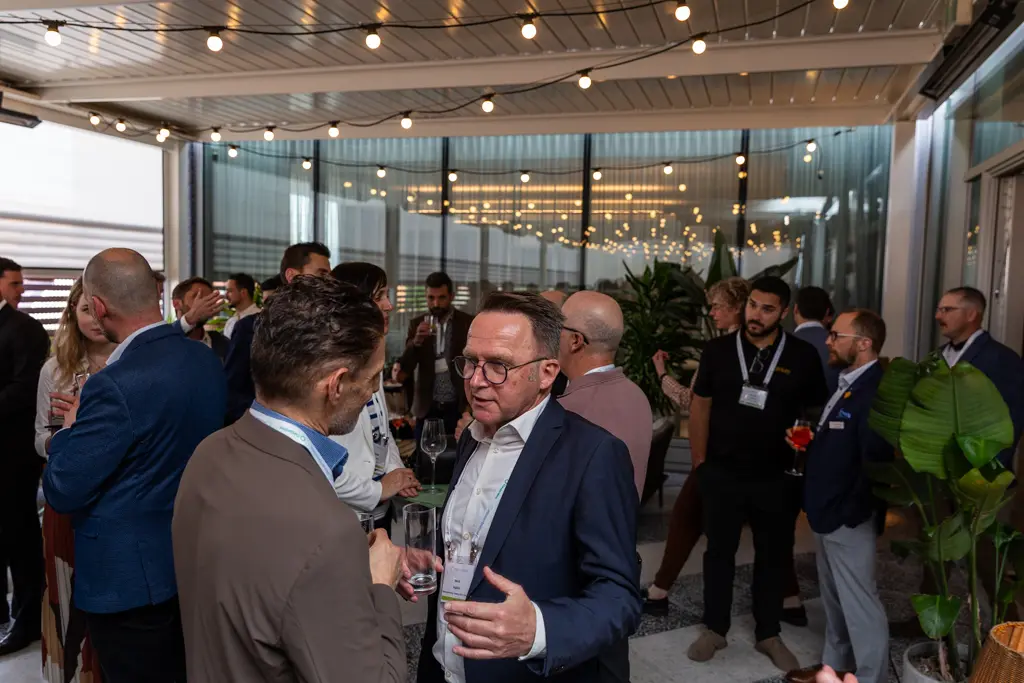




Overall, Net-Zero Quebec 2025 marked an important milestone in the mobilization of key players around a common goal: Quebec’s successful energy transition to reach net-zero by 2050.
To find out more about CanREA’s upcoming events in Quebec and across Canada, consult our 2025 events calendar.
Thank you to our sponsors
